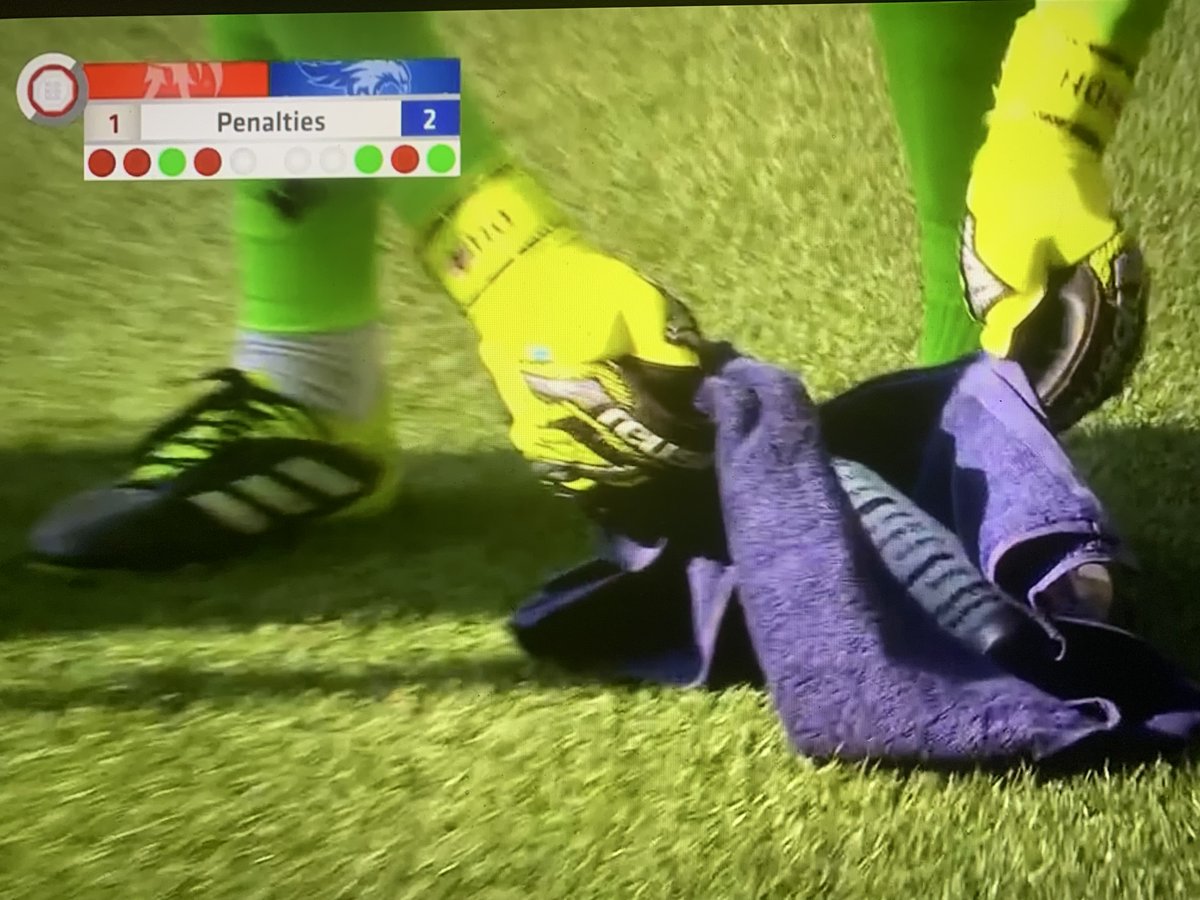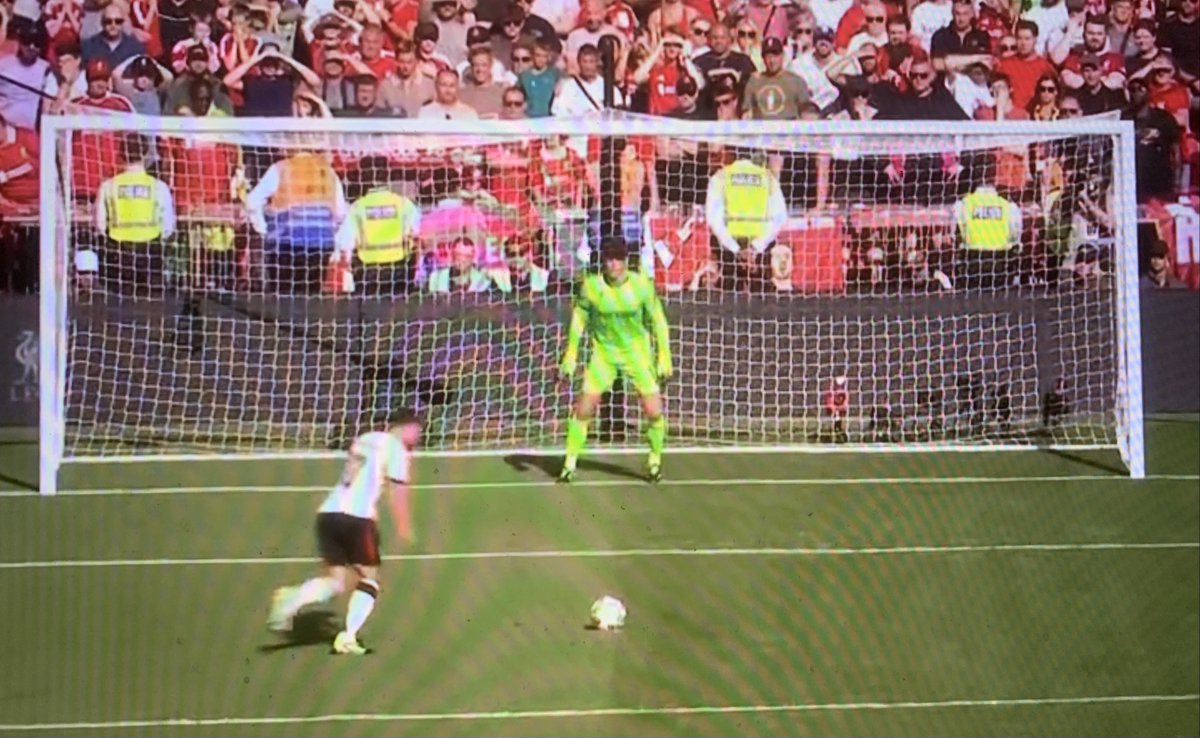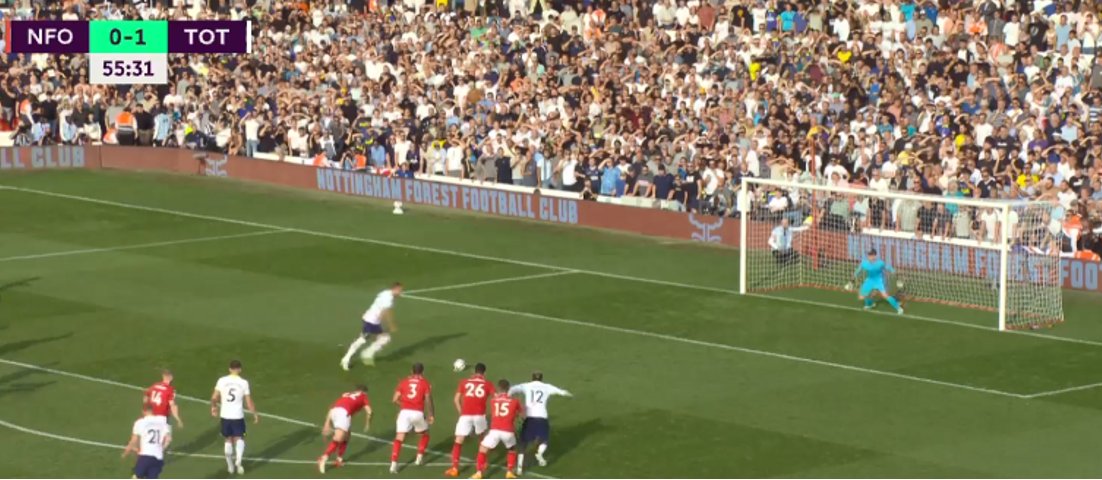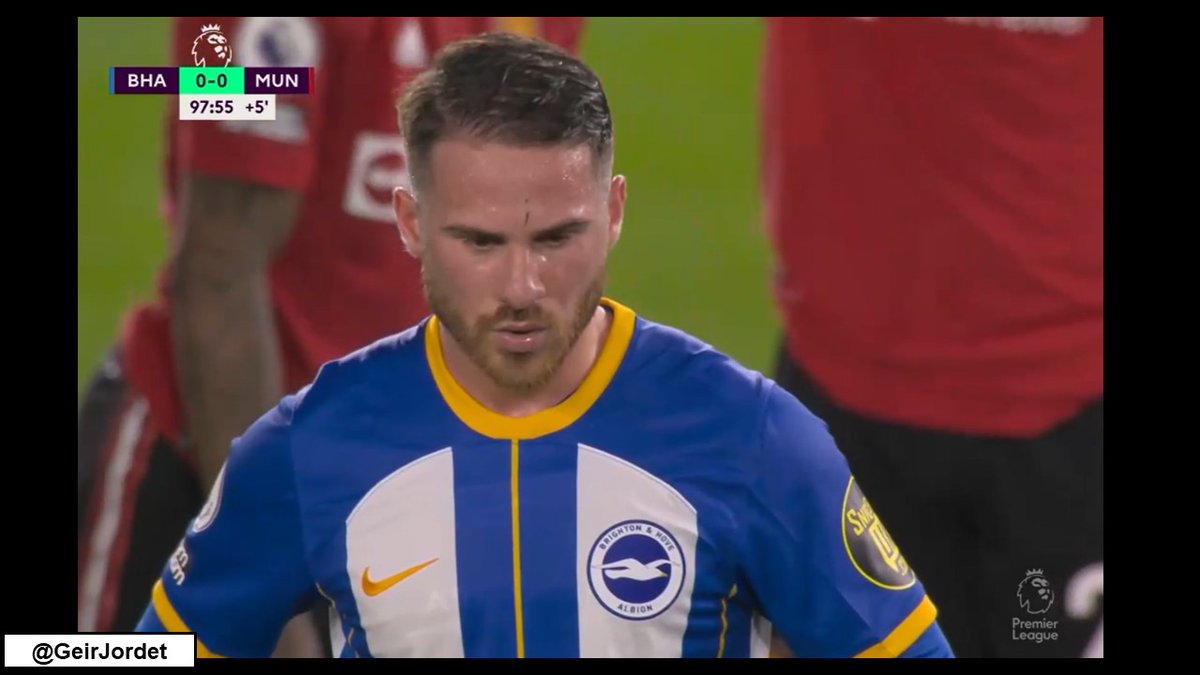Erling Braut Haaland does not only have an enormous physique & great finishing, he has an extraordinary vision and ability to scan.
So often when those around him all look at the ball, Haaland looks away from it, to prepare what happens next.
Here's how he does it.
Thread 1/6
So often when those around him all look at the ball, Haaland looks away from it, to prepare what happens next.
Here's how he does it.
Thread 1/6

Haaland constantly looks away from the ball (scans) prior to receiving the ball, with a higher frequency than other top forwards.
Forwards in our 2017-2018 Premier League study did 0.28 scans per second. We have measured Haaland a few times: he is at 0.35-0.50 scans per sec. 2/6
Forwards in our 2017-2018 Premier League study did 0.28 scans per second. We have measured Haaland a few times: he is at 0.35-0.50 scans per sec. 2/6

Haaland uses scanning in 3 different ways leading up to his goals:
1. When in or around the box, he constantly scans to find pockets of space, where he can receive the ball with time to get a shot in.
Before his first goal vs Crystal Palace, he scanned 4 times in 5 seconds. 3/6
1. When in or around the box, he constantly scans to find pockets of space, where he can receive the ball with time to get a shot in.
Before his first goal vs Crystal Palace, he scanned 4 times in 5 seconds. 3/6

2. When the ball is on its way to Haaland, he scans to know exactly how much time & space he has with it when it arrives.
This enables him to use his physique in a smart way, to bounce off the opponents when they reach him. His third goal vs Crystal Palace illustrates this. 4/6
This enables him to use his physique in a smart way, to bounce off the opponents when they reach him. His third goal vs Crystal Palace illustrates this. 4/6
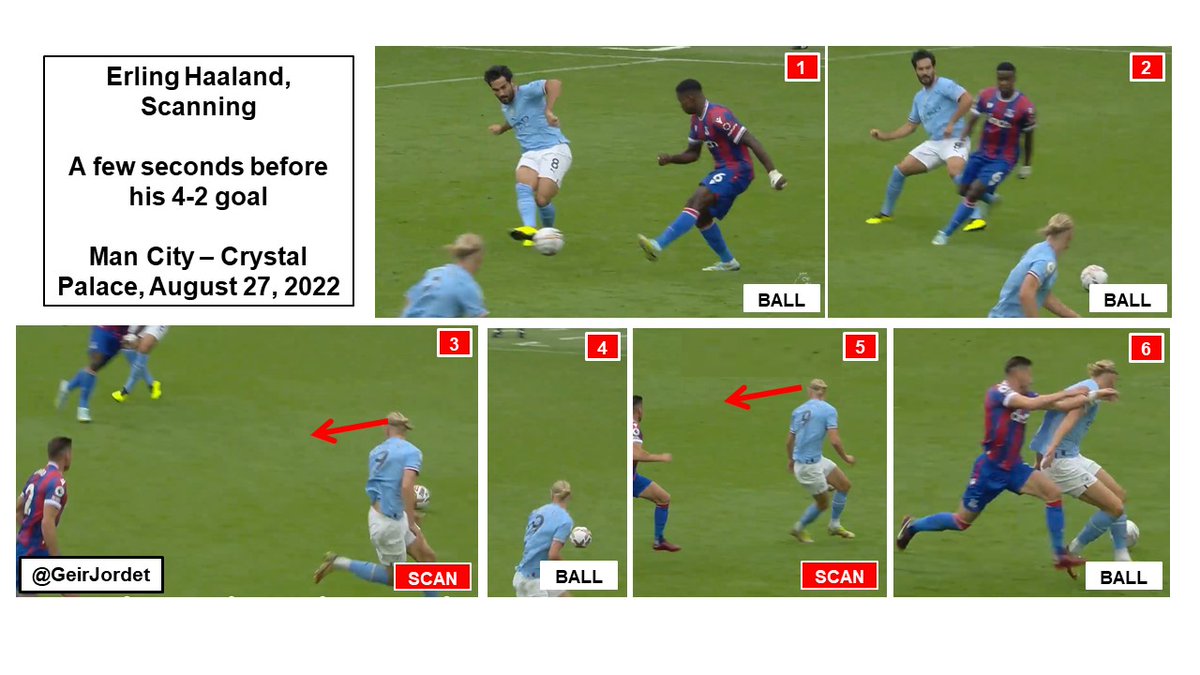
3. Once Haaland is clear of the defenders, he scans again to look at where the goalkeeper is positioned - he picks up every detail in the GK's stance (which foot he stands on, where he is leaning etc) so he can aim his shot accordingly.
His second goal vs West Ham shows it. 5/6
His second goal vs West Ham shows it. 5/6

Haaland's outstanding goal scoring talent comes from a series of highly adapted skills. One of these is his excellent ability to collect & use information on the pitch.
Even in tight situations, Haaland typically has an updated view of events around him. This puts him ahead. 6/6
Even in tight situations, Haaland typically has an updated view of events around him. This puts him ahead. 6/6
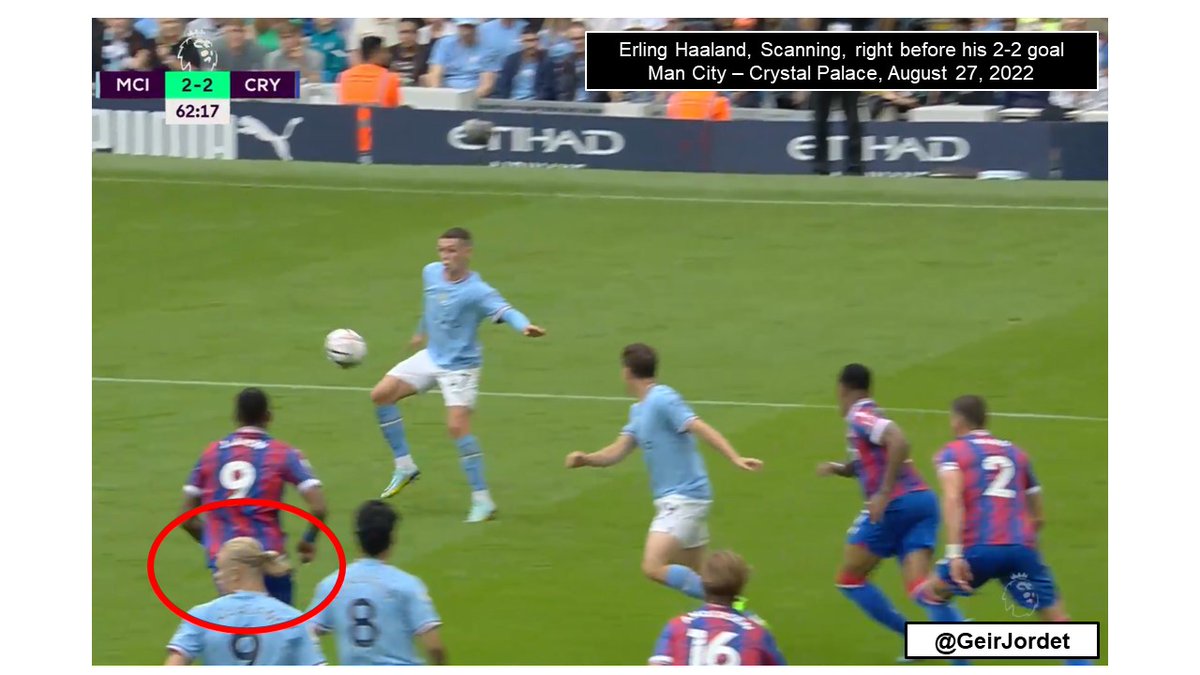
• • •
Missing some Tweet in this thread? You can try to
force a refresh


